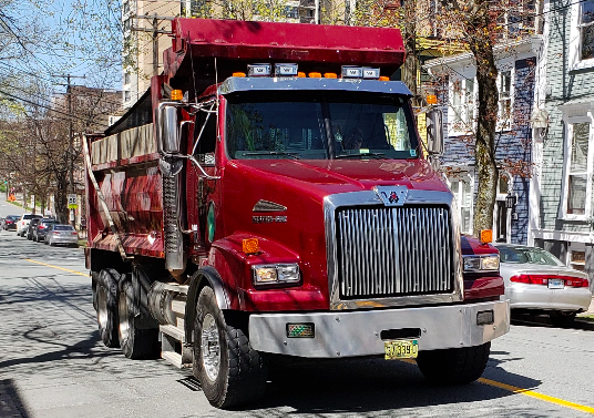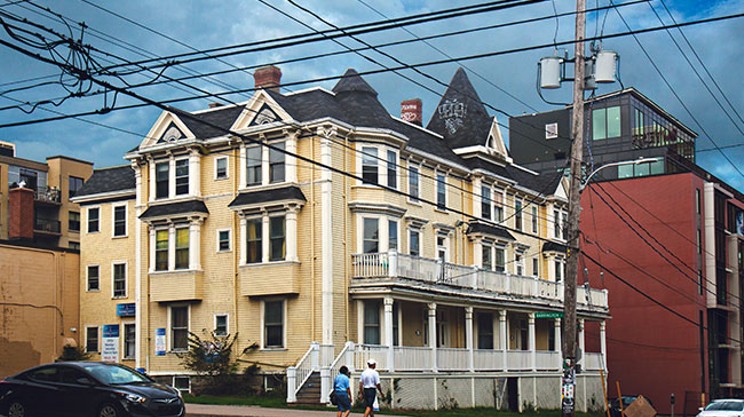
The large dump trucks of construction waste thunder by my Schmidtville window with a downshifting growl on the grade outside my house. One every six minutes, by my count. It’s not warm outside so my windows are closed. But just wait for the warm days when I have to open them. When this round of excavation began last summer, it was sheer hell and will be again this summer. Only weekends offer some respite.
I do several conference calls every
“Construction,” I say.
“Right next door?” they ask.
“No a block away.” Given the choice of unmuting myself to contribute a word or two, I often demur out of concern for my colleagues’ ears.
Wait, the trucks have stopped! Must be time for blasting. Three horns sound. A few seconds later comes the subterranean tremor. Another horn sounds “all clear.” In between blasts, there is the deep rat-a-tat-tat of “breakers” or hydraulic percussion tools that Wikipedia tells me are also called “hammers,” “peckers,” “hoe rams” or “hoe rammers.” Even as my work is disrupted, I am becoming a true cognoscente of excavation!
I work out of my home; I can no longer escape to another workplace. My 93-year-old neighbour must endure the same disruption all day. The young woman at her computer in a window across the street (either a student or self-employed) must grimace and bear it. The nearby restaurant has a permanent soundtrack playing; it’s called construction. Neighbourhood friends living next to the construction have it much worse.
The current crescendo of construction noise, vibration pollution and disruption of my neighbourhood started five years ago. According to developers’ plans for new buildings, it will continue for possibly another five.
And to what do I owe this wonderful cacophony? A university? A school? A hospital? Another public amenity? No, private developers
are building mediocre structures to house people who can afford higher rents and mortgages.
According to StatsCan, the median income of Schmidtville residents is $25,500 per year. That’s a lot less than the income of new unit dwellers. The new developments are making downtown Halifax uglier and less affordable. Moreover, when the buildings are finally finished, my heritage neighbourhood of 35-foot houses will sit in the middle of an almost-perfect canyon of tall buildings.
Construction of the Halifax Central Library from 2010 to 2013 was also a noisy travail. But living through it was part of the price I’m willing to pay to abet the public good, following Joseph Howe’s admonition, “What is right? What is just? What is for the public good?” When my wife and I walked into the glorious new library on opening day, we were quite un-embarrassingly verklempt.
But tears of love and joy have been supplanted by tears of disgust and rage. In political economy, the negative fallouts of private business upon the public are called externalities.
Business avoids the real costs of its activity by passing them on to innocent bystanders. A more pungent and truthful term for years of pain is “social dumping.”
Developers argue they pay taxes. I pay taxes too, but my externalities are minimal. We are all getting hosed.
A few years ago, Canadian economist Jim Stanford received a phone call from a skip-tracing company chasing down a former resident of his house delinquent in paying bills. Stanford spent the better part of a half hour answering their questions. As they were a profit-making company, he decided to send them a bill for his time and trouble.
Maybe I should do that. Maybe we all should do that.




















